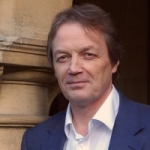The Cambridge Classical Reception Seminar Series (CCRSS) looks forward
to welcoming you to the following event this Thursday:
PROFESSOR MARILYNN DESMOND
“Trojan Temporality and the Materiality of Literary History” (Abstract below)
THURSDAY 21ST JANUARY 2016
5.15pm, Room G. 21, Faculty of Classics
ALL WELCOME
(Tea is served in the room adjacent to G.21 from 4.45pm)
*DINNER:*
/After the talk, we will be taking Professor Desmond for a meal at a
local restaurant. If you wish to join us (at guests’ own expense),
please email Maya /(mcf37@cam.ac.uk) */to
reserve a place./*
The matter of Troy in the medieval Latin West sustains a vision of the
city of Troy as ever present yet always already destroyed: a city that
exists outside of time. In medieval historiography, the Fall of Troy
results in the Trojan diaspora and the settlement of Europe by Trojan
refugees who flee the burning city; the fall of Troy consequently makes
the narrative of European history possible. This vision of Trojan
ancestry as a myth of origins is often invoked to express a vision of
European futurity. This paper will explore how the /translatio /of the
matter of Troy generated its own temporality.
In the absence of the Homeric epics, the matter of Troy was transmitted
to the medieval West by the Latin prose texts attributed to Dares and
Dictys. These texts represent themselves as the /translatio /of ancient
Greek textual traditions and simultaneously as the material transmission
of these traditions from papyrus to parchment. The vernacular itinerary
of the Latin texts of Dares and Dictys create a distinct Trojan
temporality. In the twelfth-century /Roman de Troie/, Benoît de
Sainte-Maure insists that the materiality of translation practices
allows the reader to participate directly in the Trojan War, while two
centuries later, the visual program in a manuscript of Raoul de Presles’
translation of Augustine’s /De Civitate Dei/ encapsulates the
atemporality of Troy as transmitted by Dares.
Marilynn Desmond joins us from Binghamton University, where she is
Distinguished Professor. She is an expert in French and English medieval
literature, and the reception of Classics in those fields. She is the
author of, among other things, /Reading Dido: Gender, Textuality, and
the Medieval Aeneid /and /Ovid’s Art and the Wife of Bath: The Ethics of
Erotic Violence/. In 2014 she was the recipient of the prestigious Rome
Prize from the American Academy in Rome, enabling her to kickstart her
new research project on the reception of the Fall of Troy in medieval
literature.
For further information about this event, please contact either of the
CCRSS convenors:
Maya Feile Tomes (mcf37@cam.ac.uk)
Ben Folit-Weinberg (bjf32@cam.ac.uk)
http://www.classics.cam.ac.uk/seminars/seminars/crdg
